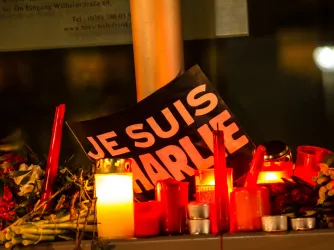Table of Contents
UC Violates Journalist's Rights; California Taxpayers Lose $162,500
In another example of universities violating individual rights and leaving taxpayers with the bill, Californians are out $162,500 following the University of California, Berkeley's settlement with a photojournalist whose photographs of a protest on Berkeley's campus were wrongfully seized during the December 11, 2009, event.
David Morse, a journalist with Indybay, had been covering the protest against fee increases and budget cuts outside Berkeley Chancellor Robert Birgeneau's on-campus residence when things turned violent and protesters began breaking windows and throwing torches. As UC police started arresting people, Morse was approached by an officer who, according to a lawsuit filed in U.S. District Court in Oakland, ignored his press pass and told him "[W]e want your camera. We believe your camera contains evidence of a crime."
While Morse was initially arrested and his photos seized, the charges were later dropped and his photos returned after a court rescinded the search warrant that was issued to collect the photos, due to state and federal laws that prohibit such warrants for unpublished journalistic materials.
The fallout from the ordeal began when Morse asked the UC police for compensation for infringing his rights, including his First Amendment right as a member of the press to document the news, and his Fourth Amendment right protecting him against unreasonable searches and seizures. When the police declined, Morse filed suit, resulting in the recent settlement.
As readers of The Torch might be aware, the particulars of the case at Berkeley bring to mind a similar case at James Madison University (JMU) in 2010, where police officers served an improper warrant to JMU's student newspaper The Breeze in an attempt to seize evidence of illegal activity at a party near campus. The warrant resulted in the collection of about 1,000 photos, many irrelevant to the incident. Unlike at Berkeley, however, the prosecutor who told the officers to collect the photos almost immediately returned them and apologized. (She eventually made a more narrow request that netted her just 20 photos.)
As a general matter, police may only seize cameras in certain narrow circumstances. As detailed by the ACLU in this useful resource, "officers may not generally confiscate or demand to view your photographs or video without a warrant." Broadly speaking, then, it is illegal and repulsive in a free society for law enforcement to seize photos without a proper warrant or to bully journalists into turning over broad swaths of their unpublished work unrelated to a specific crime.
While Berkeley spokeswoman Janet Gilmore says the university "admits no liability in the settlement" stemming from their seizure of Morse's camera, California taxpayers are nevertheless liable for footing the bill for a public university action that was avoidable and clearly unconstitutional. In a free society, violating an individual's constitutionally protected rights must have consequences, and we hope this expensive settlement puts universities on notice.
Recent Articles
FIRE’s award-winning Newsdesk covers the free speech news you need to stay informed.

Stephen Rohde: Federal court rejects lawsuit by Jewish parents and teachers that labelled an ethnic studies curriculum ‘anti-Semitic’ and ‘anti-Zionist’ – First Amendment News 452

A decade after ‘Charlie Hebdo’ killings, we are still failing blasphemers

FIRE to SCOTUS: TikTok ban violates Americans' First Amendment rights
